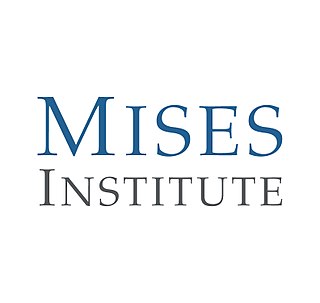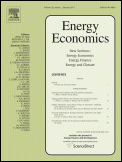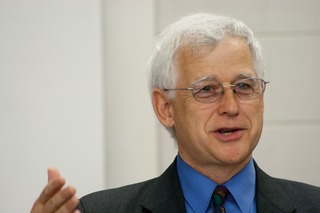In economics, factors of production, resources, or inputs are what is used in the production process to produce output—that is, finished goods and services. The utilized amounts of the various inputs determine the quantity of output according to the relationship called the production function. There are three basic resources or factors of production: land, labour and capital. The factors are also frequently labeled "producer goods or services" to distinguish them from the goods or services purchased by consumers, which are frequently labeled "consumer goods".

Ecological economics, bioeconomics, ecolonomy, or eco-economics, is both a transdisciplinary and an interdisciplinary field of academic research addressing the interdependence and coevolution of human economies and natural ecosystems, both intertemporally and spatially. By treating the economy as a subsystem of Earth's larger ecosystem, and by emphasizing the preservation of natural capital, the field of ecological economics is differentiated from environmental economics, which is the mainstream economic analysis of the environment. One survey of German economists found that ecological and environmental economics are different schools of economic thought, with ecological economists emphasizing strong sustainability and rejecting the proposition that physical (human-made) capital can substitute for natural capital.
Energy economics is a broad scientific subject area which includes topics related to supply and use of energy in societies. Due to diversity of issues and methods applied and shared with a number of academic disciplines, energy economics does not present itself as a self-contained academic discipline, but it is an applied subdiscipline of economics. From the list of main topics of economics, some relate strongly to energy economics:
Industrial ecology (IE) is the study of material and energy flows through industrial systems. The global industrial economy can be modelled as a network of industrial processes that extract resources from the Earth and transform those resources into commodities which can be bought and sold to meet the needs of humanity. Industrial ecology seeks to quantify the material flows and document the industrial processes that make modern society function. Industrial ecologists are often concerned with the impacts that industrial activities have on the environment, with use of the planet's supply of natural resources, and with problems of waste disposal. Industrial ecology is a young but growing multidisciplinary field of research which combines aspects of engineering, economics, sociology, toxicology and the natural sciences.

The Ludwig von Mises Institute for Austrian Economics, or Mises Institute, is a nonprofit think-tank located in Auburn, Alabama, United States. It is named after Austrian School economist Ludwig von Mises (1881–1973).
Energy balance may refer to:
Socioeconomics is the social science that studies how economic activity affects and is shaped by social processes. In general it analyzes how modern societies progress, stagnate, or regress because of their local or regional economy, or the global economy. Societies are divided into three groups: social, cultural and economic. It also refers to the ways that social and economic factors influence the environment.

Consumption, defined as spending for acquisition of utility, is a major concept in economics and is also studied in many other social sciences. It is seen in contrast to investing, which is spending for acquisition of future income.

In economics, the Jevons paradox occurs when technological progress or government policy increases the efficiency with which a resource is used, but the rate of consumption of that resource rises due to increasing demand. The Jevons paradox is perhaps the most widely known paradox in environmental economics. However, governments and environmentalists generally assume that efficiency gains will lower resource consumption, ignoring the possibility of the paradox arising.
The green economy is defined as economy that aims at making issues of reducing environmental risks and ecological scarcities, and that aims for sustainable development without degrading the environment. It is closely related with ecological economics, but has a more politically applied focus. The 2011 UNEP Green Economy Report argues "that to be green, an economy must not only be efficient, but also fair. Fairness implies recognizing global and country level equity dimensions, particularly in assuring a Just Transition to an economy that is low-carbon, resource efficient, and socially inclusive."

Embodied energy is the sum of all the energy required to produce any goods or services, considered as if that energy was incorporated or 'embodied' in the product itself. The concept can be useful in determining the effectiveness of energy-producing or energy saving devices, or the "real" replacement cost of a building, and, because energy-inputs usually entail greenhouse gas emissions, in deciding whether a product contributes to or mitigates global warming. One fundamental purpose for measuring this quantity is to compare the amount of energy produced or saved by the product in question to the amount of energy consumed in producing it.

Heterodox economics is any economic thought or theory that contrasts with orthodox schools of economic thought, or that may be beyond neoclassical economics. These include institutional, evolutionary, feminist, social, post-Keynesian, ecological, Georgist, Austrian, Marxian, socialist and anarchist economics, among others.
International Association for Energy Economics (IAEE) is an international non-profit society of professionals interested in energy economics. IAEE was founded in 1977, in the period of the energy crisis, when it became obvious that lack of knowledge on energy economics is one of the problems when dealing with the short- and long-term issues of energy supply and demand. IAEE is incorporated under United States laws and has headquarters in Cleveland.

Energy Economics is a bimonthly peer-reviewed academic journal published by Elsevier covering the economic and econometric modelling and analysis of energy systems and issues. The editors-in-chief are B.W. Ang, U. Soytas, R.S.J. Tol, and J.P. Weyant. The Journal of Energy Finance & Development (1996-1999) was incorporated into Energy Economics in 1999.

David R. Henderson is a Canadian-born American economist and author who moved to the United States in 1972 and became a U.S. citizen in 1986, serving on President Ronald Reagan's Council of Economic Advisers from 1982 to 1984. A research fellow at Stanford University's Hoover Institution since 1990, he took a teaching position with the Naval Postgraduate School in Monterey, California in 1984, and is now a full professor of economics.
The Energy Journal is a quarterly peer-reviewed academic journal published by the International Association for Energy Economics and covering issues related to energy economics. It was established in 1980 and the editor-in-chief is Adonis Yatchew.






